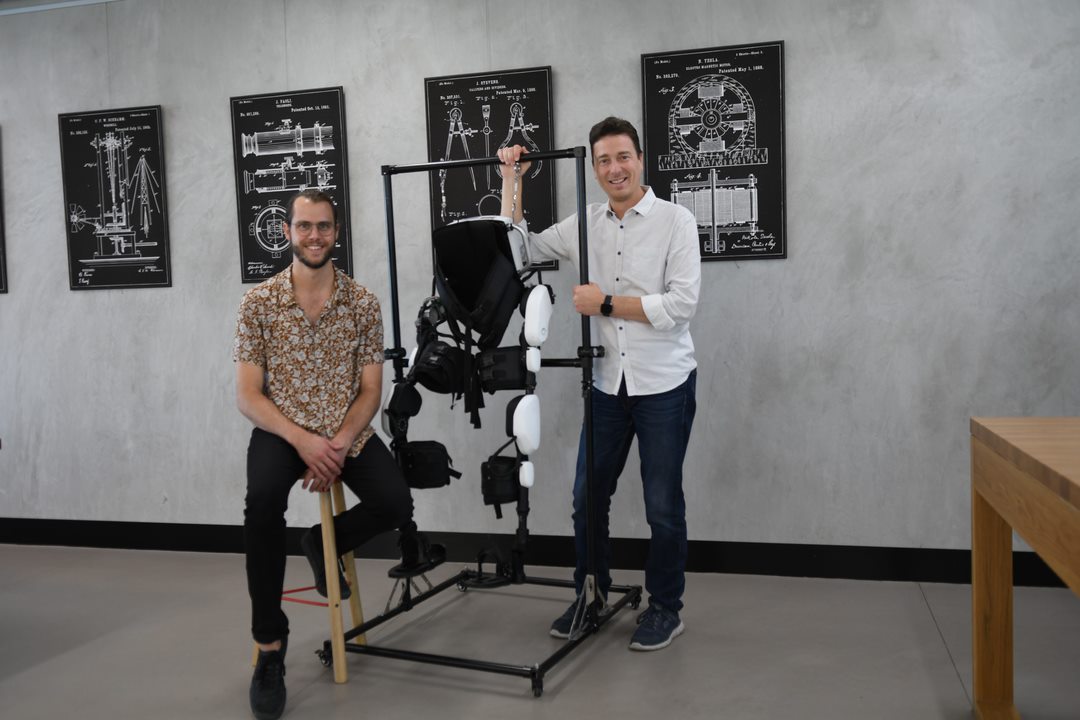
College of Science and Engineering researchers Dr Robbie Trott and Dr David Hobbs with the Fourier device.
An innovative assistive technology exoskeleton device has arrived at Flinders at Tonsley, where College of Science and Engineering biomedical researchers will put it to the test ahead of clinical trials in Adelaide.
Following the recent signing of a Memorandum of Understanding (MoU) with Fourier Intelligence, the ExoMotus 2 exoskeleton will be customised with a Flinders University sensor and controller to enhance the device’s ability to be an effective in robotic gait rehabilitation for people who have suffered a stroke.
“People after stroke often have problems walking due to weakness and poor coordination. To recovery, they need to intensively practice the things they find difficult,” says Flinders University researcher Dr David Hobbs.
“This rehabilitation is complex when walking itself is extremely unsafe or needs a lot of help.
“Our technology and the exoskeleton system will allow people to practice walking with less reliance on other people.
“We need to test this for safety and acceptability first with our strike survivor partners.”
The partnership, with Singapore-based Fourier, the University of South Australia and Royal Adelaide Hospital through a new Medical Research Future Fund grant, will expose many undergraduate and postgraduate students to the latest technology before entering the workforce.
The MRFF grant project, entitled “The feasibility and potential of a novel robotic gait bioprosthesis for people with severe gait impairment poststroke”, will continue for three years.
Senior lecturer Dr Hobbs, with Flinders University research fellow Dr Robbie Trott from the Australian Industrial Transformation Institute at the Tonsley Innovation District, say rehabilitation engineering and assistive technologies will form a big part of rehabilitation and biomedical engineering in the future.
The latest Flinders MoU agreement was signed and witnessed online by the University’s Professor Karen Reynolds, Dr Hobbs and Simon Brennan with Fourier Intelligence representatives Zen Koh, Owen Teow and Taya Hamilton.
Fourier Co-Founder and Global CEO Mr Koh says: “Our partnership helps us grow in possibilities towards collaborating in meaningful technologies, clinical protocols and clinical usage, which is very close to our hearts. By joining forces, we aim to achieve what is most vital, making technologies more accessible to those who require it.”

